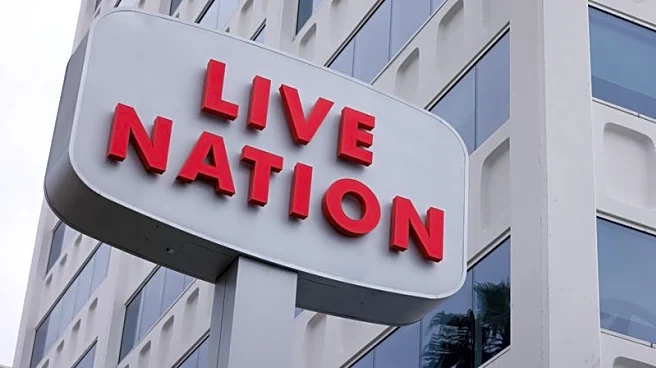Rapid Read • 7 min read
President Trump has finalized a trade deal with Japan, described as a 'massive' victory, involving a $550 billion investment from Japan into the U.S. over the coming years. The agreement includes a reduction in tariffs on Japanese imports from 25% to 15%, affecting agricultural products and notably, cars and trucks. This has led to significant stock market gains for Japanese automakers such as Honda, Nissan, Toyota, Mitsubishi, and Mazda. However, the deal has raised concerns among U.S. automakers, particularly those represented by the American Automotive Policy Council, which includes Ford, General Motors, and Stellantis. The council argues that the deal imposes lower tariffs on Japanese imports with minimal U.S. content compared to North American-built vehicles, potentially disadvantaging U.S. industry and workers.
AD
The trade deal with Japan represents a significant shift in U.S. trade policy, with potential implications for the domestic automotive industry. While the agreement is poised to create jobs and boost investment, the lowered tariffs on Japanese imports could challenge U.S. automakers' competitiveness. The American Automotive Policy Council's concerns highlight the potential impact on manufacturing costs and employment within the industry. As tariffs on imports from Canada and Mexico are set to increase, U.S. automakers may face higher production costs, affecting their global competitiveness and profitability. The deal underscores the complexities of international trade negotiations and their influence on domestic industries.
With the August 1 deadline for tariff negotiations approaching, further discussions with other markets are anticipated. U.S. automakers may continue to advocate for trade policies that support domestic manufacturing and address competitive disparities. The industry will likely monitor the implementation of the trade deal and its impact on market dynamics. Stakeholders, including policymakers and industry leaders, may explore strategies to mitigate potential negative effects on U.S. automakers and workers, ensuring a balanced approach to international trade.
AD
More Stories You Might Enjoy












